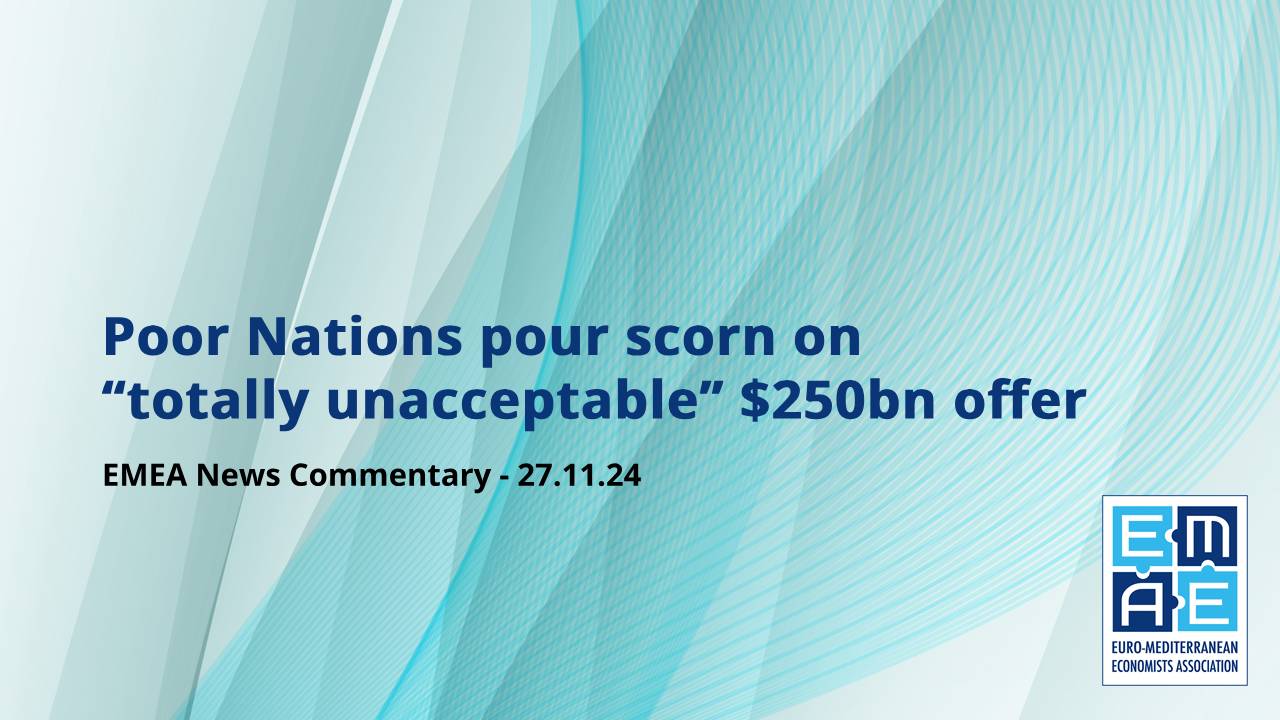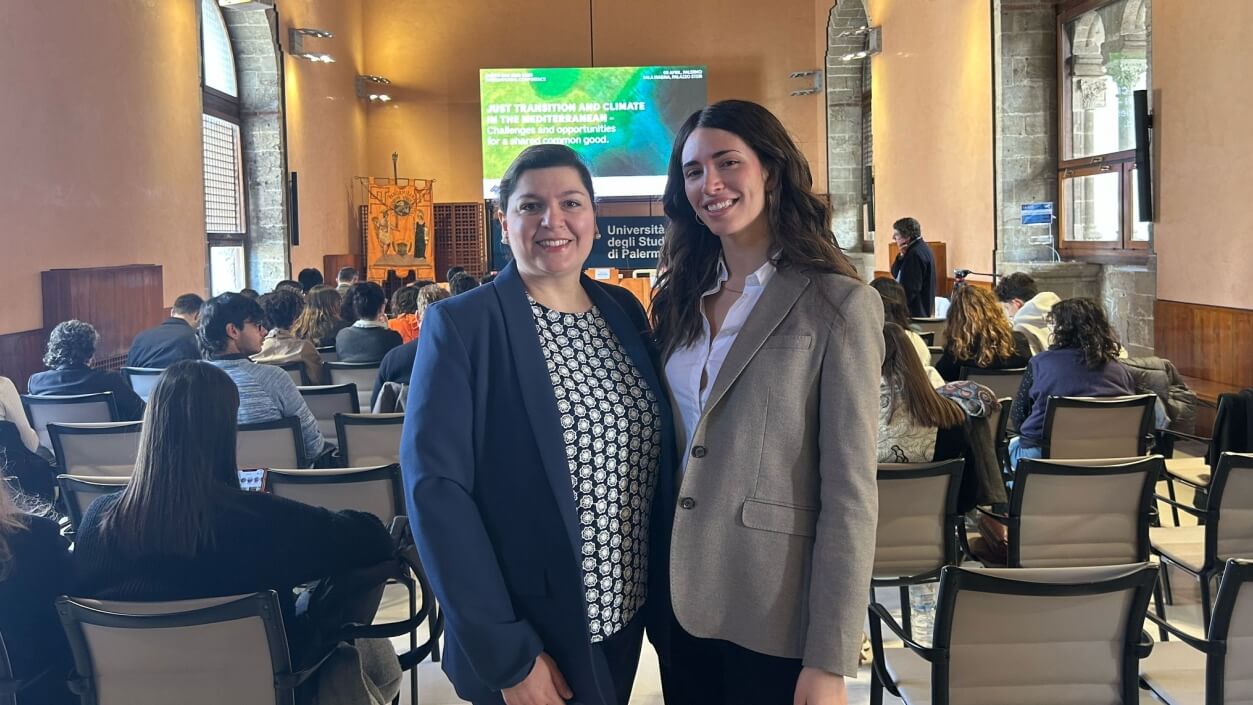Rich countries have come under fire from developing nations for a “totally unacceptable and inadequate” $250bn climate finance proposal at the COP29 Summit in Azerbaijan.
With the conference nearing its decisive concluding phase, the amount of funding put forward was said to have fallen some way short of the $390bn a year required by 2035, to combat global warming impacts, according to an independent expert group.
As reported by the Financial Times, the world’s most important climate summit was forced into overtime, with the 200 countries represented at the Azerbaijan-hosted event failing to find a resolution over a much-vaunted finance deal.
There were frantic comings and goings of Ministers and negotiators within the meeting rooms of the Baku Stadium, in an attempt “to shore up agreement on climate finance and ensure progress on a shift away from fossil fuels,” the FT observed.
With time counting down, a draft document emerged saying that rich countries should allocate $250bn annually by 2035, to help developing countries offset the effects of climate change.
This figure would replace the $100bn agreed more than a decade ago – but still fell way short of the $1.3tn that was said to be needed for climate financing. The G77 group of developing countries has been calling for a goal of at least $500bn.
The Alliance of Small Island States, a group of at-risk nations, described the $250bn offer as “contempt for our vulnerable people.” The chair of the African Group of Negotiators, Kenya’s Ali Mohamed, called the figure “totally unacceptable and inadequate.”
However, a senior US official was quoted by the FT as saying that it would take “extraordinary reach” into donor countries’ coffers to fund the $250bn finance goal. It had already taken “significant lift” to fund the previous smaller target, the spokesman said.
Financial targets to be derived from a range of sources
The FT said hostility from many Summit negotiators regarding the rich nations’ stance was based on an economic report, whose authors had said the offer was “too low.”
The Independent High-Level Expert Group, led by economist Lord Nicholas Stern, said developed countries should pay a minimum of $300bn a year by 2030, rising to an annual figure of $390bn by 2035.
The COP29 draft said this new financial target would be derived from a range of sources “including public and private funding, bilateral and multilateral funding, including alternative capital sources.”
Multilateral development banks (MDBs) have said that by 2030, they could provide $185bn in finance for low and middle-income countries. This figure would include a certain amount of private capital.
Despite the furore around the size of the offer, there was still optimism amongst some top experts that a final deal could be reached and the Summit wouldn’t end in stalemate.
“There is no deal to come out of Baku that will not leave a bad taste in everyone’s mouth, but we are within sight of a landing zone for the first time all year,” said Avinash Persaud, who was an architect of the Bridgetown agenda for financial institution reform and is now an Inter-American Development Bank adviser.
And Marc Weissgerber from the E3G think-tank noted the document’s “balance” between so-called adaptation and mitigation financing, which would be welcomed by vulnerable countries. As an example, he said that this ought to allay concerns that all the funds would go towards energy projects in middle-income countries and leaving poorer countries to stand the costs of building seawalls.
In a bid “to avoid a collapse of the discussions” talks were expected to carry on late into the final night of the Summit.
Poorer nations deride COP29 offer of $250bn to tackle climate change





